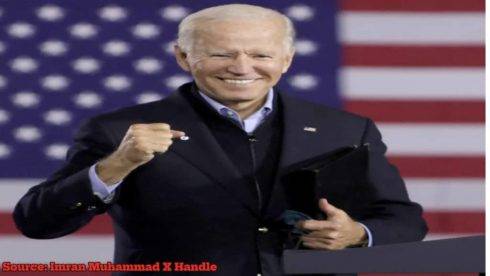The President Joe Biden administration has achieved a massive victory for Americans as the U.S. Drug Enforcement Administration (DEA) prepares to reclassify marijuana as a less dangerous drug. This historic shift in policy, as reported by the Associated Press, is set to undo generations of destructive drug laws and pave the way for far-reaching reforms in the nation’s approach to cannabis.
According to the AP’s reporting, confirmed by multiple sources familiar with the changes, the DEA’s proposal would move marijuana from its current classification as a Schedule I drug, alongside substances like heroin and LSD, to the less restrictive Schedule III category, which includes ketamine and anabolic steroids. This reclassification acknowledges marijuana’s recognized medical uses and reflects the long-established fact that it has a far lower potential for abuse compared to other, more dangerous drugs.
A Crucial Step Towards Nationwide Marijuana Legalization
While the DEA’s proposed rescheduling of marijuana does not amount to outright legalization, it represents a crucial step on the road towards full nationwide legalization. By recognizing the drug’s medicinal properties and acknowledging its relatively low risk of abuse, the President Joe Biden administration is paving the way for a more rational and evidence-based approach to marijuana policy.
This groundbreaking development comes as a direct result of President Joe Biden’s executive order in October 2022, instructing a comprehensive review of federal marijuana laws. The move complements the President Joe Biden’s decision to pardon thousands of Americans who had been convicted of simple marijuana possession charges, further underscoring his commitment to reforming the nation’s outdated and often draconian drug policies.
President Joe Biden: Undoing Generations of Destructive Drug Laws
The DEA’s proposed reclassification of marijuana is set to have wide-ranging effects, undoing generations of destructive drug laws that have disproportionately impacted marginalized communities and contributed to the criminalization of millions of Americans. By acknowledging the drug’s medicinal value and lower risk profile, this policy shift represents a significant departure from the failed “War on Drugs” approach that has plagued the nation for decades.
With marijuana’s rescheduling, the President Joe Biden administration is signaling a fundamental shift in the federal government’s stance on cannabis, recognizing the need for a more compassionate and evidence-based approach to drug policy. This move is expected to pave the way for further reforms, including the potential decriminalization or legalization of marijuana at the federal level, aligning with the growing public support for such measures across the nation.
President Joe Biden: A Milestone in the Fight for Sensible Drug Policies
The DEA’s proposed reclassification of marijuana represents a significant milestone in the fight for sensible and humane drug policies in the United States. For decades, advocates, medical professionals, and civil rights organizations have called for a reevaluation of the nation’s stance on cannabis, citing its potential therapeutic benefits and the disproportionate harm caused by its criminalization.
By acknowledging the scientific evidence and shifting marijuana to a less restrictive schedule, the President Joe Biden administration is taking a crucial step towards aligning federal policies with the latest research and public opinion. This move not only has the potential to expand access to medical marijuana for those in need but also to address the systemic inequalities perpetuated by the harsh enforcement of outdated drug laws.
President Joe Biden: Potential Economic and Social Impact
Beyond the immediate implications for drug policy reform, the DEA’s proposed reclassification of marijuana could have far-reaching economic and social impacts. By reducing the stigma and legal barriers surrounding the drug, this move could pave the way for the growth of a regulated and taxed cannabis industry, generating new economic opportunities and sources of revenue for states and localities.
Additionally, the rescheduling of marijuana could potentially alleviate the burden on the criminal justice system and allow for the allocation of resources towards more pressing public safety concerns. By decriminalizing the possession and use of cannabis, the President Joe Biden administration is taking a step towards addressing the disproportionate impact of drug laws on marginalized communities and promoting a more equitable and just society.
President Joe Biden: Ongoing Challenges and the Road Ahead
While the DEA’s proposed reclassification of marijuana represents a significant victory for drug policy reform advocates, the road ahead is not without challenges. The rescheduling process itself is expected to face scrutiny and potential legal challenges from those opposed to loosening restrictions on cannabis.
Moreover, even with the DEA’s proposed changes, the federal government’s stance on marijuana remains out of sync with the growing number of states that have legalized or decriminalized the drug for medical or recreational purposes. Advocates and policymakers will need to continue pushing for further reforms to fully align federal and state laws, ensuring consistent access and protections for individuals and businesses operating in the cannabis industry.
Table of Contents
Discover more from OGM News NG
Subscribe to get the latest posts sent to your email.














